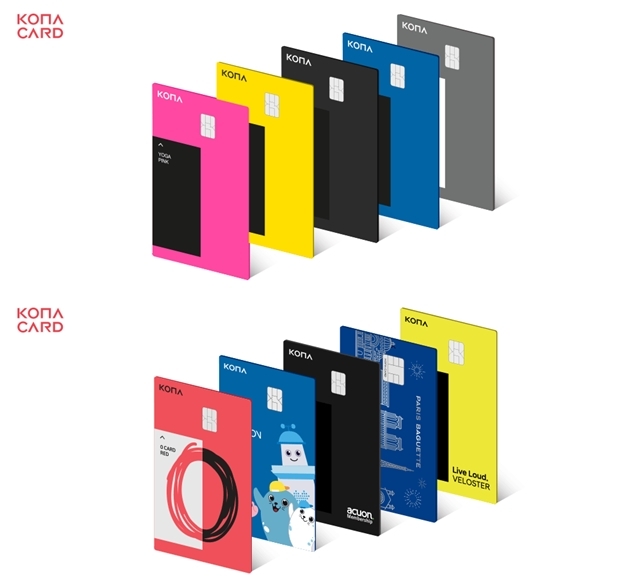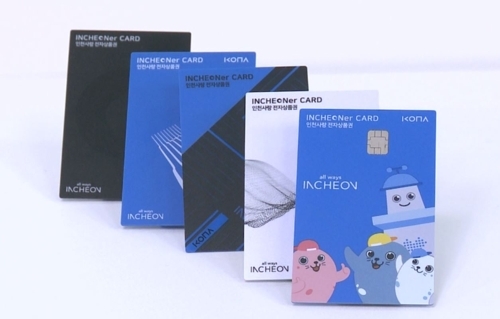This is the 61st in a series of articles analyzing major companies traded on the tech-heavy Kosdaq market. -- Ed.
South Korea’s leading smart card part manufacturer Kona I is gaining market presence as a reloadable prepaid card provider, catalyzed by a series of events over the past couple of months.
Analysts have expressed optimism that the Seoul-headquartered firm, which has been running at a loss since 2016, can make turnaround by the end of this year.

As of Friday, Kona I was the 193rd-largest Kosdaq-traded company out of some 1,200 listed firms on the tech-heavy market, with its market cap at 281.6 billion won ($250 million).
In late August, Kona I saw a dramatic increase in its share price. In the five trading days until Aug. 23, it soared 36.7 percent, boosted by a net purchase of some 416,100 shares by institutional investors and 372,500 shares by foreign investors over the cited period. A week later, it recorded a 52-week-high on Aug. 28 at 20,200 won. It has lost some of those gains since then. On Friday, Kona I stock price stood at 18,100 won in closing, down 3.2 percent from the previous day’s close.
Founded in 1998 and listed on the Kosdaq in October 2001, Kona I has developed and manufactured parts for smart cards that ensure transactions with enhanced security compared to magnetic credit cards. Standardized for global card network providers like Europay, Mastercard and Visa, its products include personalized integrated circuit chips and biometric cards. Kona I currently owns affiliates devoted to smart card solutions, including Kona M and Duali.
Capitalizing on the tech prowess, the company released its prepaid card brand Kona Card in February this year, months after the Financial Services Commission permitted companies to issue prepaid cards in September 2017. Kona I does not hold a license as a financial company, barring it from issuing cards except for prepaid cards.
 |
(Kona I) |
In Korea, where credit card payment infrastructure is readily available, reloadable prepaid card products by Korean firms like Kona I or Kakaopay provide users with more discounts than credit cards, as well as money transfer services and other benefits.
“Kona I is adding a new financial business onto its traditional card chip making business,” wrote Park Jin-hyoeng, an analyst at Yuanta Securities Korea. “A quantum leap forward is expected this year on the back of favorable circumstances and its competitive edge.”
Park cited diverse business cooperation models to provide Kona Cards with private companies and local governments.
Kona I on July 31 began to provide IC-chip-mounted prepaid cards to INCHEONer Card, an electronic voucher for residents in Incheon that is available for payment to small retailers. INCHEONer Card is Korea’s first e-voucher by Korea’s autonomous government.
 |
INCHEONer card (Incheon Metropolitan Government) |
On Aug. 19, teaming up with SK Telecom, Korea’s largest telecommunication firm, Kona I launched a prepaid card targeting young customers, through which a user will get at most 15 percent discount for frequently-visited shops. Also starting Aug. 31, Kona I has made it unnecessary for Kona Card holders to make payments using the products.
Park added that financial authorities’ move to toughen regulation on card companies designed to support small-sized businesses sheds light on Kona Card’s low commission rate at 1.2 percent, compared to the average of 2.1 percent charged by credit card payments.
In the first half of 2018, Kona I logged an 11.1 billion won net loss and a 13.4 billion won operating loss, according to its consolidated financial statement.
But riding a steep pace of growth in the number of prepaid card subscribers, Park of Yuanta Securities Korea estimated its annual net income in 2018 by year-end to reach 12.2 billion won and an operating income to stand at 1.4 billion won.
The estimate is based on the premise that the average monthly payment through Kona Card per user reaches 300,000 won, while new 600,000 Kona Card products were issued this year.
Some 460,000 reloadable Kona Card products were issued directly to customers as of end-June, aside from issuance through separate providers like SK Telecom or Incheon Metropolitan Government, according to its regulatory filing.
Moreover, the end of Kona Card development will translate into a decrease in expenditure of the company, a Kona I spokesperson told The Korea Herald. This will add to the fact that users’ deposit into the prepaid card is regarded as an income in the financial statement.
Chief Executive Cho Jung-il is the biggest shareholder of the company. Owning 28.22 percent shares, Cho is the only shareholder with over 5 percent of ownership.
By Son Ji-hyoung
(
consnow@heraldcorp.com)






![[Weekender] Korea's traditional sauce culture gains global recognition](http://res.heraldm.com/phpwas/restmb_idxmake.php?idx=644&simg=/content/image/2024/11/21/20241121050153_0.jpg)



